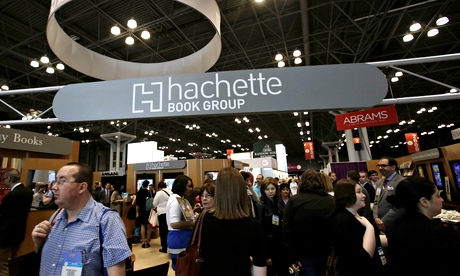
How much should an ebook cost? And how should that money be split? These two questions seem to be at the centre of a debate ripping through the publishing industry. How this debate plays out could have lasting repercussions for readers, writers, publishers, and booksellers.
The debate arose as negotiations between Hachette Book Group – one of the largest publishers in the world – and Amazon, the largest book retailer in the world, began to falter. By all accounts, the sticking point is over who controls the price of digital books. It isn't the first time this clash has occurred over the very same issue. In 2010, Hachette was one of the five publishers that worked with Apple to raise the price of ebooks and force digital retailers onto a new profit model.
Hitherto, ebooks were sold much like print books. Publishers gave a wholesale discount of around 50%, and retailers could set the list price however they saw fit. They could discount the book, but they would take the hit on profits alone. Under the new plan, publishers would dictate the price to the retailer and the retailer's cut would be reduced to 30%, making discounting impossible. This resulted in higher prices for consumers, more money for publishers, and no control for retailers.
The United States Department of Justice stepped in, found evidence of collusion and price-fixing, and this model was dismantled. What emerged in its place has been a strange amalgamation of the two former models. Wholesale pricing and discounting resumed, but the discount provided to retailers remained in the neighborhood of 30%.
Under the previous wholesale model, publishers might price an ebook at $14.99 (£8.99), and with the 50% discount, an online retailer like Amazon was able to discount to a more reasonable $9.99 to serve customers. Customers who expect digital books to cost less than the paperbacks with which they were familiar. With the new discount rate, Amazon stood to lose money by offering that same price. Publishers, meanwhile, were less than enthusiastic about lowering the offered wholesale discount.
Publishers like Hachette now found themselves in enviable territory. They could price ebooks high – protecting their relationship with high-street booksellers – and rely on Amazon to cut their own margin to the bone in order to move quantities of ebooks. This new situation created the bizarre scenario where authors who once complained about Amazon's discounting are now complaining that they aren't discounting enough. And during these negotiations, parties from Hachette's side are accusing Amazon of raising prices by offering something close to what the publisher itself is setting.
In a presentation to investors, Hachette has stated as a primary goal the control of ebook pricing. Breaking their habitual silence just last week, a representative from Amazon confirmed that the sticking point in these negotiations is indeed price. So both sides have confirmed what's at stake. History would indicate that Amazon thinks ebooks should cost no more than $9.99. Their agreement with self-published authors supports this, as the royalty rate paid halves if the price exceeds this amount. Hachette, meanwhile, would very much prefer to offer ebooks at $14.99 or more and leave any discounting up to Amazon (or any pain up to their customers).
Amid these negotiations, a media campaign has erupted that has been almost entirely one-sided. Hachette authors from Stephen Colbert to James Patterson have demanded Amazon to negotiate in good faith, despite being unable to articulate what each side is demanding and who is being fair or unfair. When readers and lesser–known writers were given the ability to take sides late last week, they overwhelmingly came out on the side of Amazon, with a Change.org petition approaching 5,000 signatures as of this writing.
What is the ideal outcome in this standoff? Resolution, for one. Many of us would love to see the pain being suffered by Hachette's authors end immediately. The simplest and fairest way for this to happen would be for Hachette to stop insisting on ebook prices well north of $9.99. High ebook prices harm not only individual readers but readership in general. And Hachette's authors suffer from lost sales due to uncompetitive prices. With reasonable prices, Hachette could continue to move units, and Amazon would be able to earn the margin a retailer is owed by not having to discount for its customers at great sacrifice to itself.

